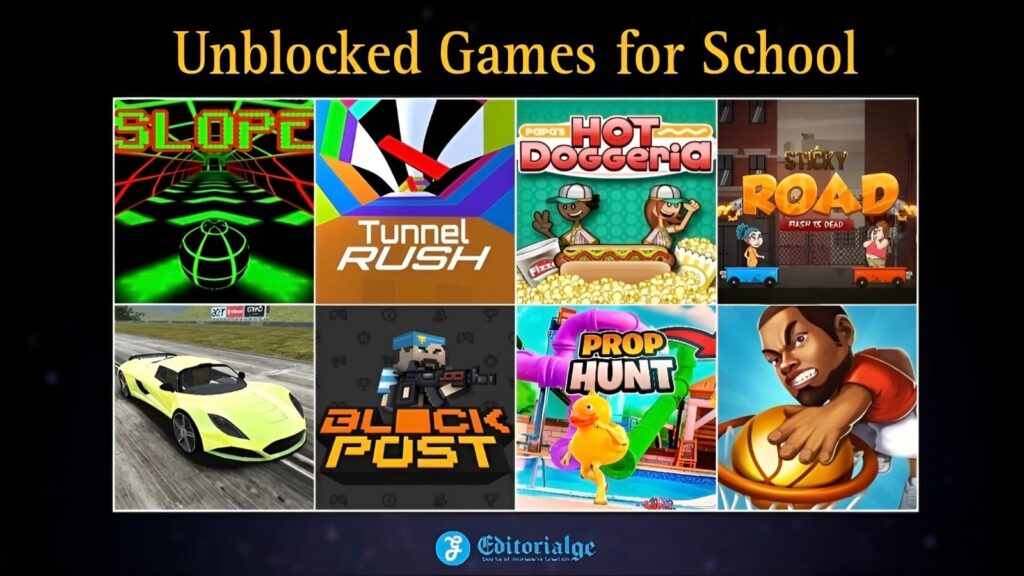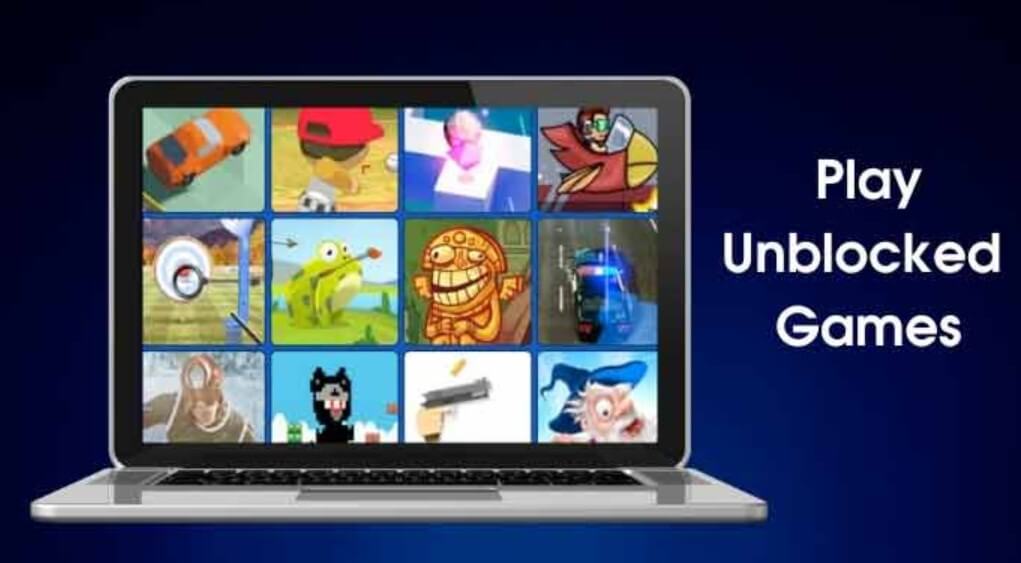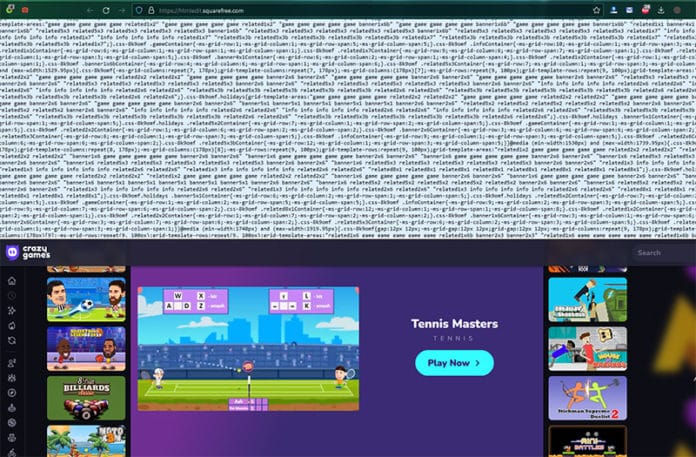Unblocked Games At School: A Comprehensive Examination
Unblocked Games at School: A Comprehensive Examination
Related Articles: Unblocked Games at School: A Comprehensive Examination
Introduction
In this auspicious occasion, we are delighted to delve into the intriguing topic related to Unblocked Games at School: A Comprehensive Examination. Let’s weave interesting information and offer fresh perspectives to the readers.
Table of Content
Unblocked Games at School: A Comprehensive Examination
The concept of "unblocked games at school" evokes a sense of nostalgia for many, conjuring up memories of lunchtime escapades and after-class diversions. While the term itself may seem straightforward, the phenomenon it represents is complex, encompassing a range of factors that influence its existence, use, and impact on the educational landscape.
This article aims to provide a comprehensive overview of unblocked games at school, exploring its historical context, its potential benefits and drawbacks, and its role in contemporary education. We will delve into the reasons behind its popularity, the ethical considerations surrounding its use, and the ongoing debate surrounding its place within the school environment.
Historical Context: The Rise of Unblocked Games
The emergence of unblocked games at school is inextricably linked to the increasing availability of internet access in educational institutions. As computers and internet connections became commonplace in schools, students naturally sought ways to utilize these resources for entertainment and leisure.
The early days of unblocked games were characterized by simple, web-based titles that could be accessed without the need for complex software installations. These games were often hosted on websites specifically designed to bypass school network firewalls, hence the term "unblocked." The popularity of these websites grew rapidly, fueled by the desire for accessible entertainment and a shared sense of community among students seeking a break from traditional classroom activities.
The Appeal of Unblocked Games:
The appeal of unblocked games lies in their accessibility and their ability to provide a sense of escape and enjoyment during the school day. They offer students a chance to relax, de-stress, and engage in activities that are often seen as a welcome break from the demands of academics.
Potential Benefits:
- Stress Relief: Engaging in games can be a valuable tool for stress management, allowing students to unwind and temporarily escape the pressures of schoolwork.
- Cognitive Enhancement: Some games, particularly those that involve problem-solving, strategy, and critical thinking, can contribute to cognitive development and enhance skills that can be applied to academic pursuits.
- Social Interaction: Online multiplayer games can foster a sense of community and encourage collaboration and communication among students.
- Creative Expression: Games can provide a platform for creative expression, allowing students to explore their imagination and develop their artistic skills.
Potential Drawbacks:
- Distraction: Unblocked games can be a significant distraction from academic work, leading to decreased productivity and poor academic performance.
- Time Management Issues: The allure of games can lead to students neglecting their responsibilities and spending excessive amounts of time playing, impacting their time management skills.
- Cyberbullying and Online Safety Concerns: Online games can expose students to cyberbullying, inappropriate content, and other online safety hazards.
- Addiction: Excessive gaming can lead to addiction, negatively affecting mental health, social relationships, and academic performance.
Ethical Considerations:
The use of unblocked games at school raises ethical concerns related to student well-being, educational integrity, and responsible use of technology.
- Student Well-being: It is crucial to ensure that students are not engaging in excessive gaming that could lead to addiction, sleep deprivation, or other health problems.
- Educational Integrity: Unblocked games can be a distraction from academic work, potentially undermining the learning process.
- Responsible Technology Use: Schools must establish clear guidelines for responsible technology use, including appropriate times and contexts for gaming.
The Role of Unblocked Games in Contemporary Education:
The debate surrounding unblocked games at school continues to evolve as technology advances and educational priorities shift. Some educators view unblocked games as a valuable tool for learning, while others see them as a distraction that should be minimized or eliminated.
- Educational Games: The emergence of educational games that integrate learning objectives into gameplay has led to a renewed interest in using games as a teaching tool.
- Gamification: Gamification, the application of game mechanics to non-game contexts, has gained traction in education, with teachers incorporating game-like elements into their lessons to enhance engagement and motivation.
- Digital Literacy: Schools are increasingly focused on developing students’ digital literacy skills, including responsible online behavior, critical media literacy, and understanding the potential risks and benefits of technology.
FAQs Regarding Unblocked Games at School:
1. What are the most popular unblocked games at school?
The popularity of specific games varies over time, but some enduring favorites include classic arcade games, puzzle games, and sports simulations.
2. Are all unblocked games appropriate for students?
No, many unblocked games contain inappropriate content, violence, or mature themes that are not suitable for students. Schools should implement filters and monitoring systems to restrict access to inappropriate games.
3. How can schools effectively manage unblocked games?
Schools can implement a combination of strategies, including:
- Clear policies and guidelines: Establish clear rules regarding technology use and acceptable gaming practices.
- Monitoring and filtering software: Utilize network filters to block access to inappropriate websites and games.
- Educational initiatives: Educate students about responsible online behavior, cyberbullying, and the potential risks of excessive gaming.
- Parental involvement: Encourage open communication with parents about technology use and online safety.
4. What are the long-term implications of unblocked games on student development?
The long-term implications depend on the individual student and their gaming habits. Excessive gaming can lead to negative consequences, but moderate, responsible gaming can offer benefits such as stress relief and cognitive enhancement.
5. How can educators utilize games as a learning tool?
Educators can incorporate educational games into their curriculum to enhance engagement, motivation, and learning outcomes. They can also utilize gamification techniques to make traditional learning activities more engaging and interactive.
Tips for Responsible Gaming at School:
- Set Time Limits: Establish clear time limits for gaming to ensure students prioritize academic work and other responsibilities.
- Monitor Content: Be aware of the content of the games students are playing and ensure they are appropriate for their age and maturity level.
- Encourage Balance: Promote a balanced approach to technology use, encouraging students to engage in a variety of activities, including physical activity, social interaction, and creative pursuits.
- Communicate Openly: Foster open communication with students about the potential risks and benefits of gaming, and encourage them to seek help if they are experiencing problems related to gaming.
- Integrate Games into Learning: Explore opportunities to incorporate educational games and gamification techniques into the curriculum to enhance learning and engagement.
Conclusion:
Unblocked games at school are a complex phenomenon with both potential benefits and drawbacks. While they can provide a source of entertainment and stress relief, they also pose risks related to distraction, addiction, and online safety. Schools must strike a balance between providing students with opportunities for leisure and ensuring that technology is used responsibly and does not interfere with educational goals.
By implementing clear policies, utilizing monitoring software, and fostering open communication with students and parents, schools can create a healthy and productive learning environment that balances the potential benefits and risks of unblocked games.






![20 Best Unblocked Games for School to Kill Boredom [Updated]](https://techpp.com/wp-content/uploads/2022/09/BEST-UNBLOCKED-GAMES.jpg)

Closure
Thus, we hope this article has provided valuable insights into Unblocked Games at School: A Comprehensive Examination. We appreciate your attention to our article. See you in our next article!

Leave a Reply